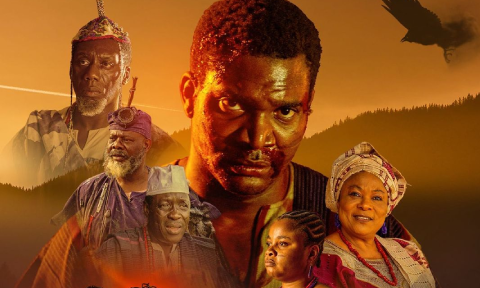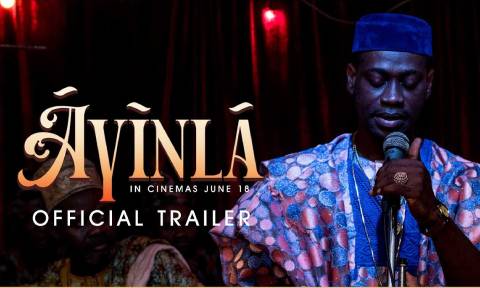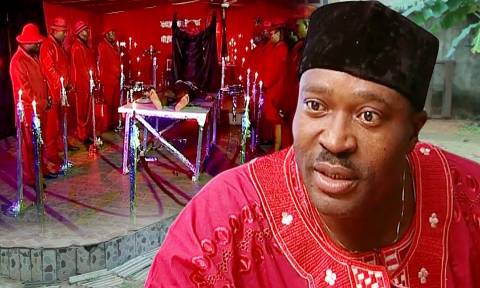
Participants at a forum organised by the Committee for Relevant Art (CORA) in honour of writer Mabel Segun, who clocked 80 recently, did more than eat the birthday cake. They thoroughly appraised the non-existent cooperation between Nigeria’s literature and motion picture industries during the round-table at the National Theatre, Iganmu on March 21. They also touched on why collaboration should be encouraged.
Filmmaker Tunde Kelani, Francis Onwuche, Dapo Adeniyi, writers Odili Ujubuonu, Toni Kan, and Mowunmi Segun who stood in for her mother during the discussion, were the panellists who talked on the theme, ‘Promoting Cooperation between Literature and Film.’
The cutting of the birthday cake preceded the discussion. Poet Odia Ofeimu, Kelani and others joined the celebrant during this aspect of the programme. Segun only spoke once at the occasion. “If you say the youth don’t read, what do they do on the Internet? You can’t be illiterate and go on the Internet,” she said in defence of youth, said by the older ones to be lacking a reading culture.
CORA secretary general, Toyin Akinosho set the ball rolling by reading ‘Never Again’, a short story by Segun. He added that the author of ‘My Father’s Daughter’ and other children’s work is, “the matriarch of Nigerian letters, the only woman who could match the big men of the Nigerian literature world.”
Mutually exclusive sectors
Mowunmi Segun disclosed that her mother believes she spends too much time watching Nigerian movies. “I do watch Nollywood films but I find myself dozing off at intervals because they are so predictable,” she said. She reiterated that Nollywood can’t develop unless scriptwriters first develop their craft.
Author of ‘Under the Brown Rusted Roofs’, Abimbola Adelakun, revealed that a filmmaker had approached her to write him a film. “I asked him if he had read Purple Hibiscus he replied no. [It was the ]same for Half of A Yellow Sun, Everything Good will Come and all the other titles I asked if he had read.” She noted that the filmmaker wasn’t actually interested in making good movies; all he wanted was “something that will make him money. Adelakun however noted that Nollywood will be forced to grow if the audience grows.
“I can’t make a film that won’t earn me money, the end must justify the means,” stated filmmaker, Francis Onwuche. According to him, filmmakers in other countries receive grants to make art-films because they are more expensive to make. “I can’t be forced to be ready. I need to ask myself if I am ready and receive confirmation that the society is ready,” he said concerning the making of films adapted from Nigerian books.
Ujubuonu believes that Nollywood is not availing itself of the opportunity offered by books. “If Chinua Achebe and Wole Soyinka’s works are complex, you can start by adapting ‘The Passport of Mallam Illia’ and ‘The Drummer Boy’, these are not complex stories,” Ujubuonu said in response to Onwuche’s earlier claim that it is expensive to turn Nigerian classics into films.
Toni Kan agreed that literature presents ready material and thinks the film industry should seize the opportunity. “The Godfather was first a novel, Crazy Heart, Blind Side, Precious, Lonely Bones and most of those films that won awards this year were adapted from novels. If Nollywood aspires to be like Hollywood, then it should do the same with its films,” he said.
Literature, film and intellect
Kelani offered that ‘gullible’ audiences expect no more than a quick fix when watching Nigerian films. He explained that this is why filmmakers can get away with making films with insubstantial content. “Literature stimulates the intellect of the whole people,” said the filmmaker. He stressed that bad films are capable of causing a systematic degradation of the intellect of the society itself. “I have a love for books, which is why I am able to adapt books into films” said Kelani. He however noted that in adapting a work, the filmmaker has to respect the writer by adding value to it.
Chief executive officer of Position International TV, Dapo Adeniyi, has been trying to make Wole Soyinka’s ‘Ake’ into a film for close to three decades with no success. He said, “Budgets shoot up when it comes to adapting literature to motion pictures. If we can get the government involved with funding and actually put in the funds they make available, then it will be possible to turn our classic literature into film.” Adeniyi also mentioned the difficulty of getting the right interpretation of an author’s work. “Achebe says he was grossly misinterpretated, he was not happy with the film adaptation. For Soyinka’s work, when we were discussing it with the NTA board back then, none of the people on the board had actually read the work. How possible would it have been for them to then make suitable adaptation?”
Do it well or…
“You can’t get Ola Rotimi or Wole Soyinka to write for the screen because they are not screenwriters,” said Femi Oso from the audience. He added that getting works adapted is the work of the screenwriter who should get involved in establishing a relationship between literature and films. Pamela Udoka supported Mabel Segun’s assertion that children want to read, and will read if they can access reading material. She however pointed out that lack of proper research is evident in some Nigerian literature.
Writer and filmmaker Chris Ihidero, passionately defended youth at the occasion. He stated that established filmmakers should be sincere whenever they feel they really should produce good films. “Americans also produce crap but they make sure only the good films get here. Nevertheless, let us Nigerian filmmakers not touch the classics unless we can do them well.”
By Ireyimika Oyegbami
www.nigeriafilms.com



















